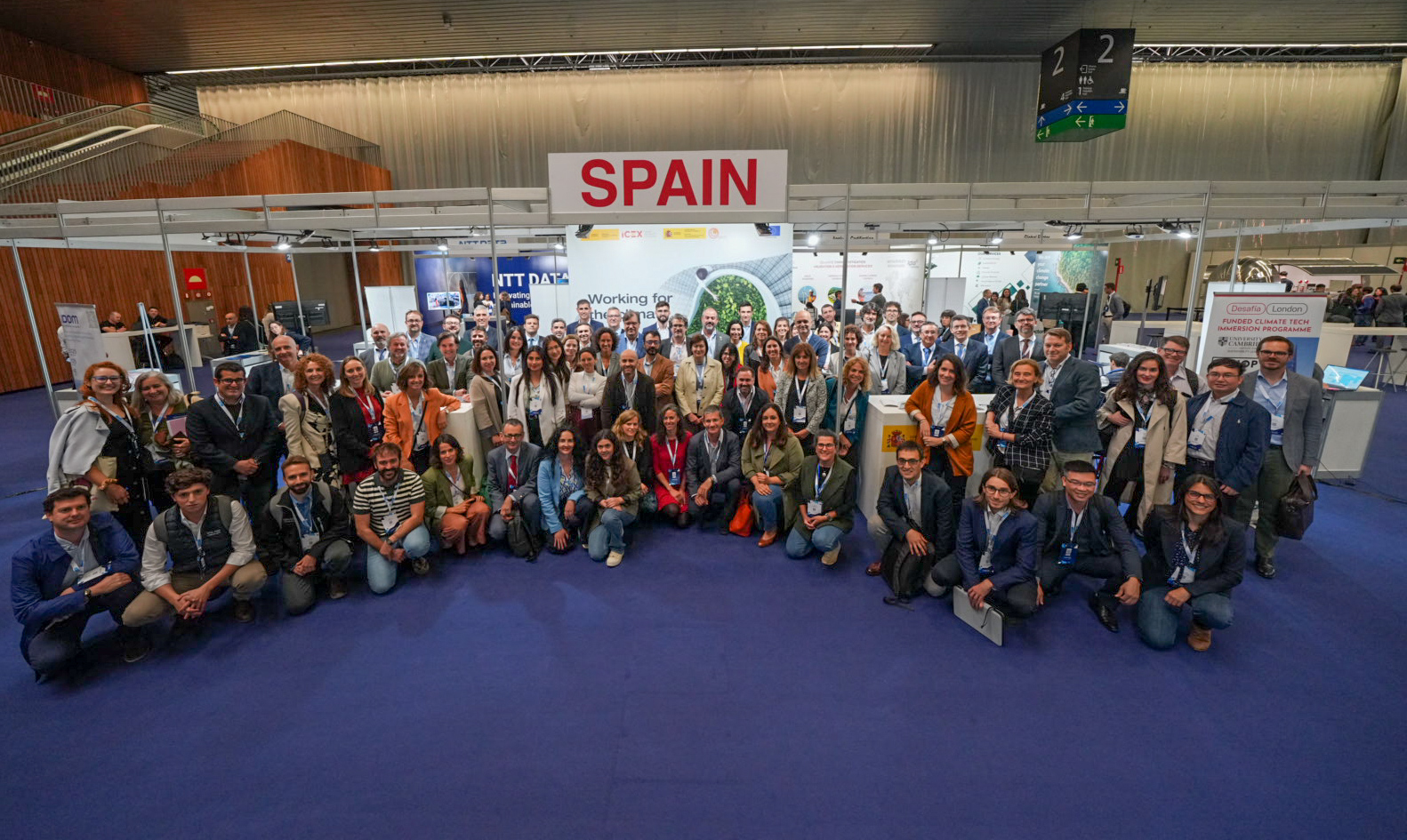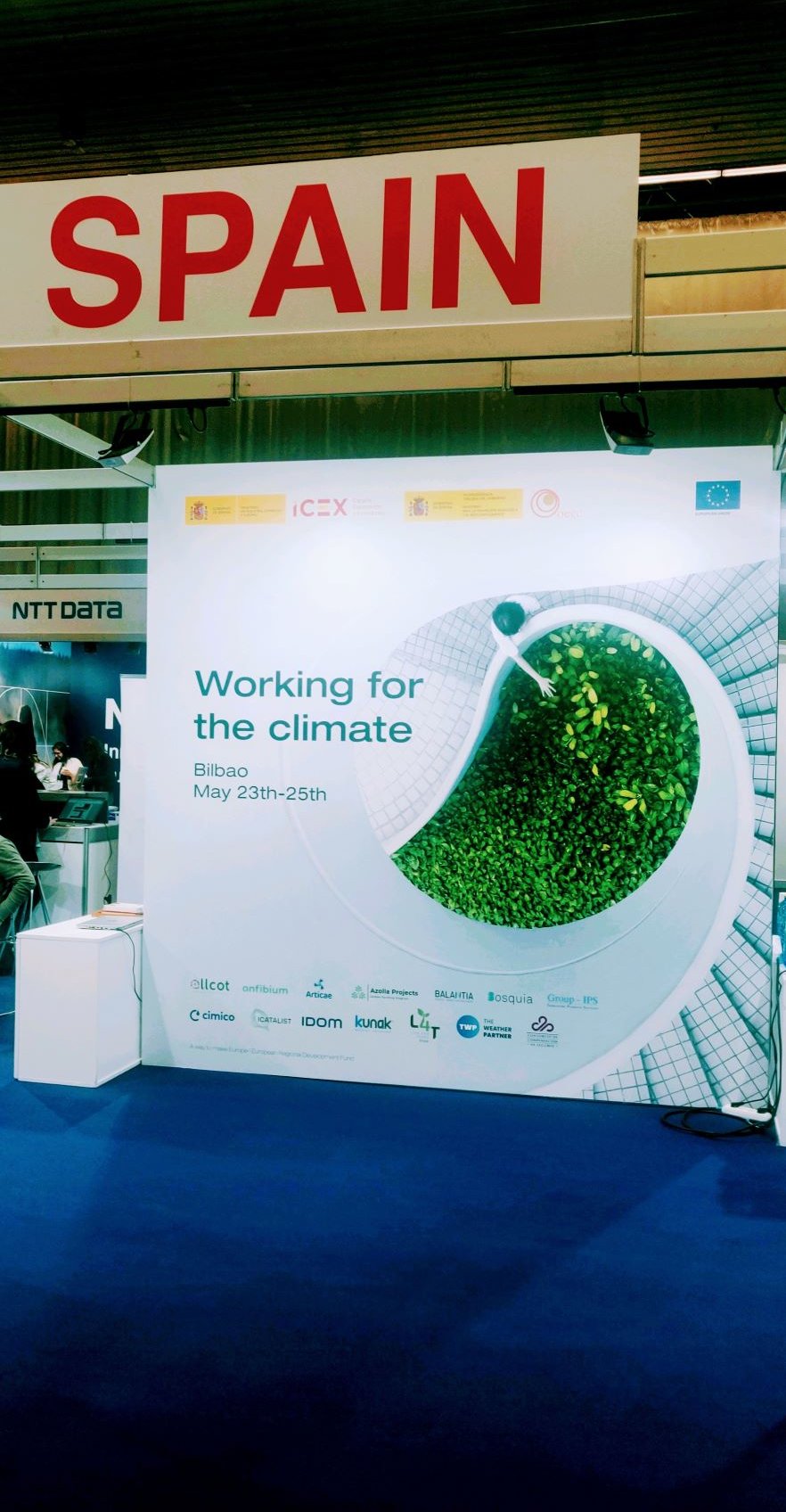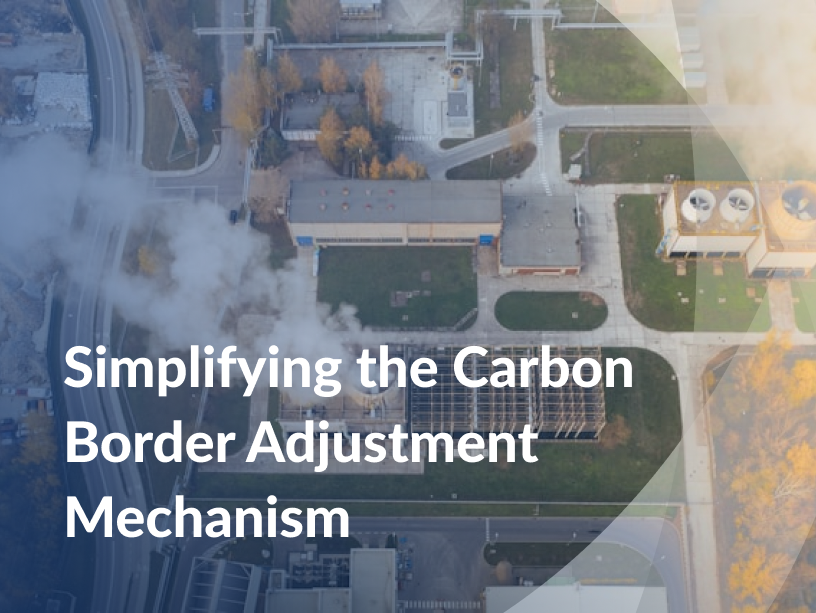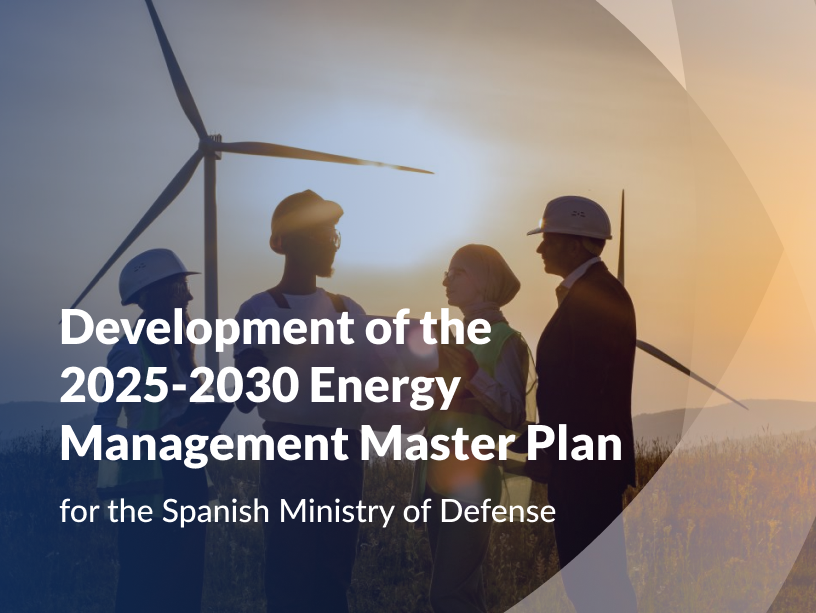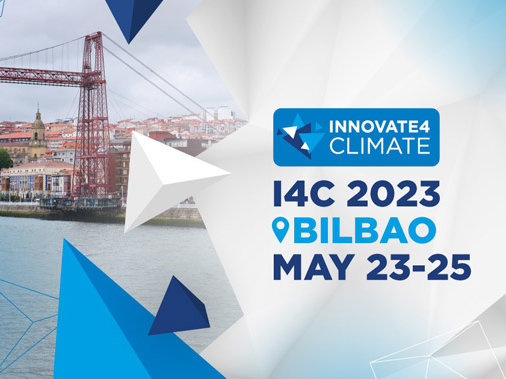
Group-IPS in the world's leading event on climate change action
In its first fourth edition, I4C has positioned itself as the world's leading event on climate change action. Group IPS is one of the companies participating in the Spanish Pavilion, organized by ICEX Spain Export and Investment, in collaboration with the Spanish Climate Change Office.
Group-IPS has participated in Innovate4Climate, which is being held from 23-25 May in Bilbao.
This congress, organized by the World Bank, with the support of the governments of Spain and Germany, has brought together leaders from more than 130 countries to participate in an extensive programme of plenary sessions, more than 40 workshops and side events on public-private partnerships in climate finance and investment, technology innovation and carbon markets, as well as an exhibition space with 30 pavilions.
In its first fourth edition, I4C has positioned itself as the world's leading event on climate change action.
Group IPS is one of the companies participating in the Spanish Pavilion, organized by ICEX Spain Export and Investment, in collaboration with the Spanish Climate Change Office.
Maria Romero, our Manager in Sustainability Process & Environment Services, assisting to this Congress, summarizes some of the most remarkable topics and challenges that are being discussed these days:
Carbon marketsand the path to net-zero: over two-thirds of countries have included them in their plans to help meet their climate goals. If designed well, carbon markets could play a key role in unlocking finance for climate action to achieve and raise the level of ambition in their climate commitments. That’s the case of an increasing number of developing countries, that face the dilemmas, among others, of how to decide what mitigation activities are suitable for international cooperation; how to designing processes for approval and authorization and to align domestic requirements with those of buyers active in Art. 6.2 of Paris Agreement to avoid duplicities, and how to manage the opportunities brought in by the voluntary carbon market in conjunction with Article 6 participation.
“State and Trends of Carbon Pricing 2023” the World Bank Publishes Annual Report at Innovate4Climate in Spain. Some relevant facts:
- The share of global emissions covered by carbon taxes and emissions trading systems (ETSs) has grown from 7% to around 23%.
- Government revenues from carbon taxes and ETSs have grown nearly five-fold as policies have evolved and diversified to reflect increased ambition
- Revenues from ETSs and carbon taxes are often used for specific purposes—almost 40% of the revenue is earmarked for green spending, and 10% is used to compensate households or businesses. Both are seen as ways to increase support for these policies.
- Jurisdictions continue to introduce new carbon pricing instruments, such as Indonesia’s ETS this year
Investment in Green Hydrogen
By 2050, global hydrogen demand is expected to increase sixfold covering a potential 12% of global energy demand and slash up to 10% of our global carbon emissions. Hydrogen is seen as an essential foundation for the transition to net zero, especially among hard-to-abate sectors – provided that we double down on low-carbon hydrogen produced with clean, renewable energy. Carbon Markets may be a funding source for this alternative technology to enable mitigation commitments.
Green building market transformation
A blueprint for climate finance in real estate. Today, buildings generate 39% of GHG emissions from operational energy use. With the built environment expected to double by 2050, driven mainly by urbanization and growth in emerging markets, it is crucial to address these challenges. Sustainability ESG criteria implementation in real state is becoming a necessity more than an voluntary measure to increase value of these assets.
Digitalization of carbon markets
Transparency and accountability are critical to a well-functioning carbon market. the Digital for Climate (D4C) Working Group, comprised by the United Nations Framework on Climate Change (UNFCCC), European Bank for Reconstruction and Development (EBRD), United Nations Development Programme (UNDP), World Bank, International Emissions Trading Association (IETA), and the European Space Agency (ESA), aims to build an end-to-end digital ecosystem to underpin the development of post-2020 carbon markets under the Paris Agreement.
Blockchain-based digital infrastructure
The Climate Action Data Trust is an integral part of the World Bank’s Climate Warehouse End-to-End Digital Ecosystem. By connecting registries through a decentralised digital infrastructure and making information public, CAD Trust aims to mitigate the risk of double counting and enhance the integrity of carbon markets. This secure blockchain-based digital infrastructure will allow for easier and more efficient compliance reporting, transacting, and benchmarking by the public and private sector.


